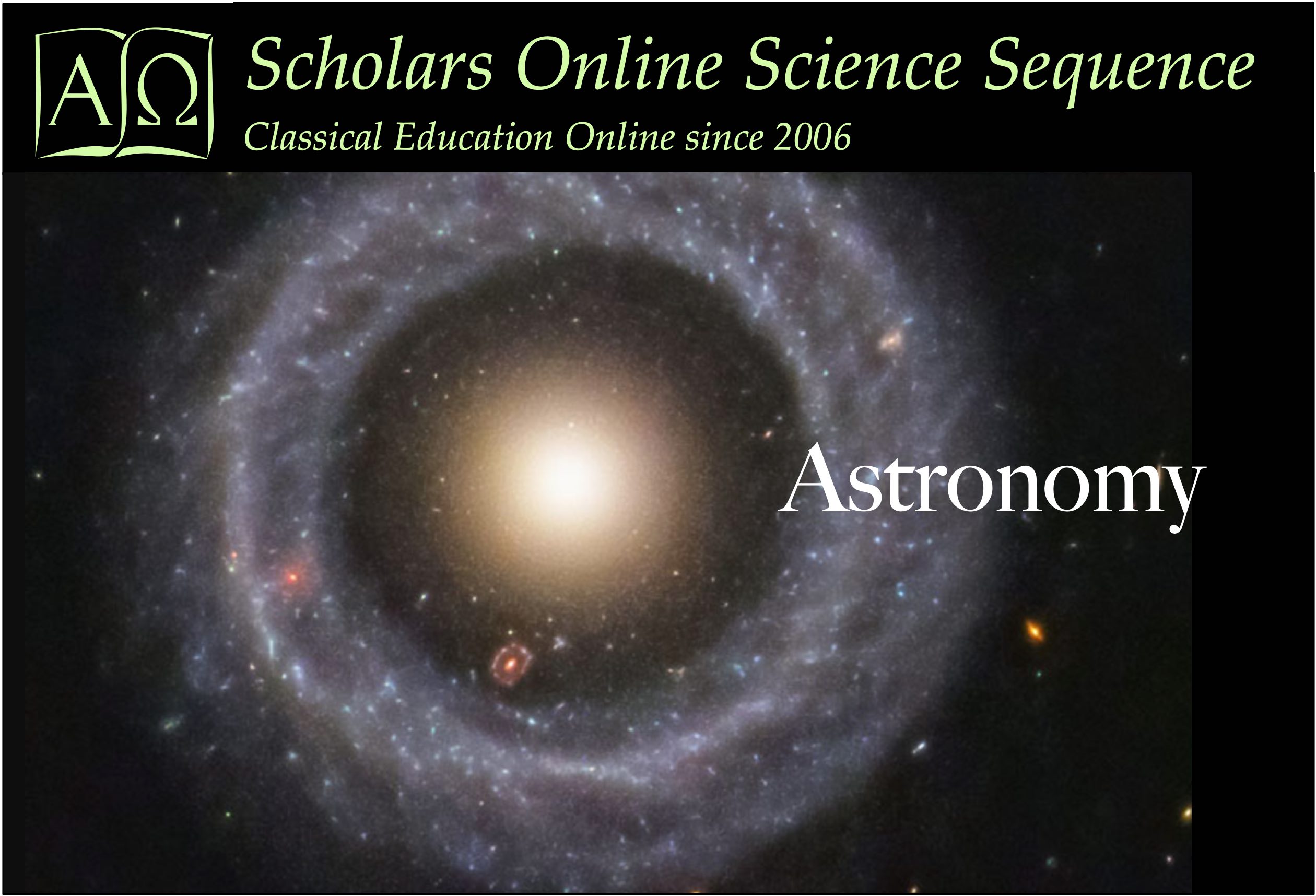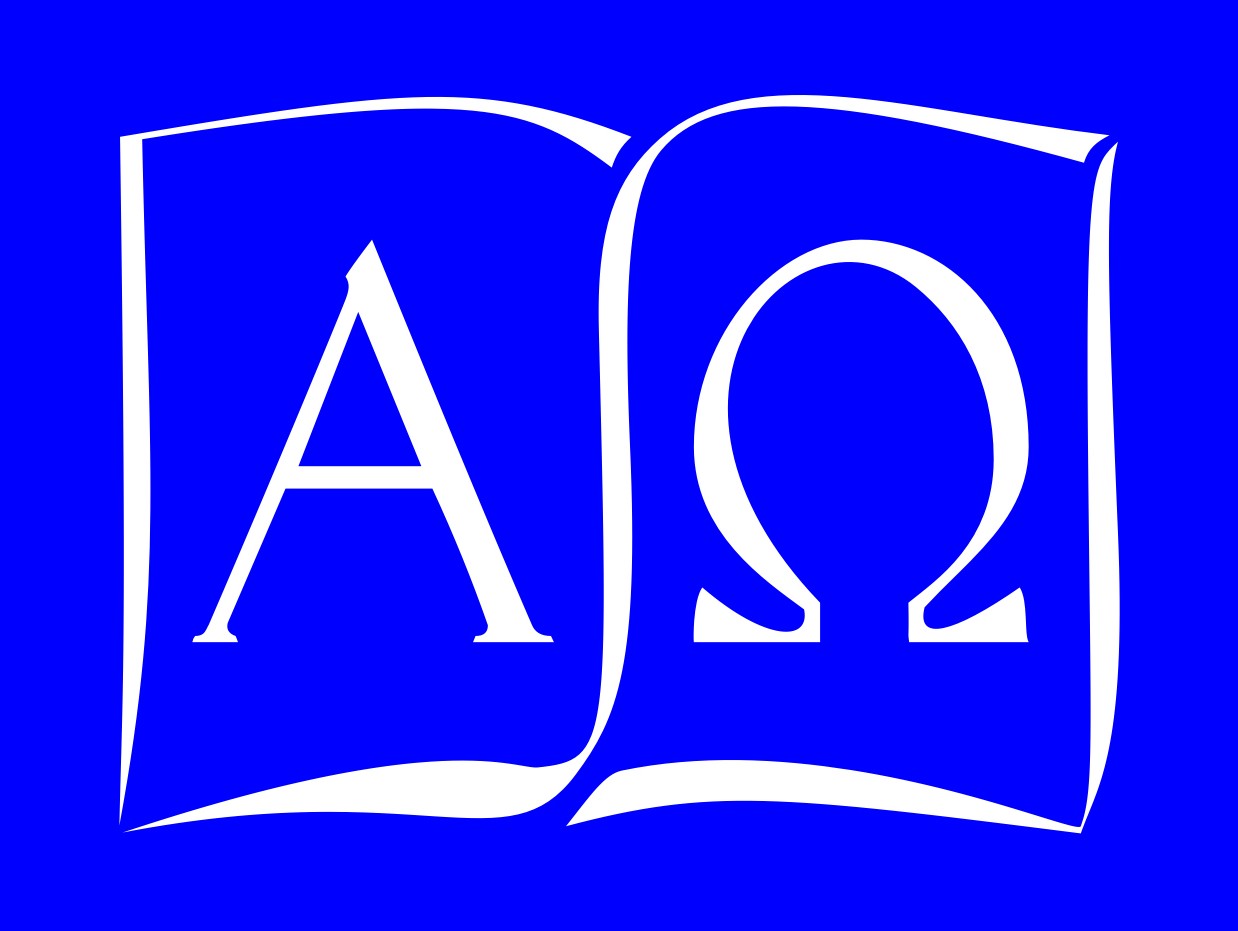Welcome back! Click this button to log in, update your contact information, add students, and enroll yourself or your student in our courses.
Course Description
Academic Year 2022-2023 • Grade 10 and above • Science Sequence
For reference only; see current year course listing for course availability and details.Astronomy
Sections and Teachers
Section 1: Instructor: Christe McMenomy
Starts: September 6, 2022
Ends: June 2, 2023
Tuesday 1:00 PM to 2:30 PM ET
Tuition: $550.00

There is more information at the teacher's course Website: Astronomy
We'll study the principles of modern astronomy, including basic constellation recognition, apparent motions of celestial objects, development of the Copernican model of the solar system, telescope optics, characteristics of solar system planets, stellar structure and life cycles, and current theories on the origin of the universe. Learn how to navigate by the stars, why planets stay in orbit around the sun, what causes a supernova, and what modern astronomers think happened in the first three seconds of the universe!
This course is taught using the Scholars Online Chat software, which allows the teacher to embed graphics, mathematical equations, and movies in the chat session, with complete logging available for the entire year. Audio software is not used to allow students with limited internet access to participate fully, and to encourage precise thinking and writing skills.
Prerequisites
You should have completed Algebra I and be able to solve the quadratic formula, calculate areas and volumes, and be comfortable with exponential notation. Concepts using logarithms will be presented as part of the course.
Recommended background
Astronomy is not generally offered at the high school level, so this course gives you a unique option to broaden science curriculum. It is particularly appropriate for students who have completed Biology or Natural Science but have not yet taken the pre-calculus math required for AP/Honors Chemistry or Physics. It is also an excellent opportunity for seniors who have completed a biology-chemistry-physics sequence to apply their skills in a different area.
Teacher's notes:
Lab exercises and observing session suggestions are presented for each week's chapter, but are not required for completion of the course. Students completing at least 12 lab exercises will receive lab credit; labs may be completed over the summer to accommodate weather conditions and best opportunities for observing planets and deep-sky objects.
Textbooks and Materials
This item is required:
Stellarium Planetarium [Edition or Version: 0.21.0], Authors: Fabien Chéreau Alexander Wolf, Guillaume Chéreau, Georg Zotti, Marcos Cardinot, et. al.
ISBN: 000000000
Publisher's website: Stellarium Planetarium
Best sources: Use the above website to download the native version of the planetarium; it is available for LINUX, Windows, and Mac. It runs quite well on Catalina.
Other information: You may also wis to check out the different features.
This item is required:
Universe [Edition or Version: 11], Authors: Robert Geller; Roger Freedman; William J Kaufmann
ISBN: 1319039448
Publisher's website: Universe
Best sources: Scholars Online Bookstore
Other information: This text is also available from VitalSource in eBook only edition.
This item is required:
University of Nebraska-Lincoln Astronomy Education Application Suite [Edition or Version: 1], Authors: The Astronomy Faculty at UNL
ISBN: 0000000000
Publisher's website: University of Nebraska-Lincoln Astronomy Education Application Suite
Best sources: Use the publisher's website to download the correct set (ClassAction, NAAP Labs, Interactives) for your platform. The Mac version is 64-bit and runs nicely on Catalina.
Ready to Enroll?
Don't yet have a member account? Click this button to create one. We collect only the information we need to identify you and support your enrollments.
Need to know more first? Click the button to check out our FAQs page. You can also email the teacher (just click on the teacher's name in the section listing above!), or contact our Academic Support advisor (See our Support page).
 Scholars Online is fully accredited through the Middle States Accreditation Commissions on Elementary and Secondary Schools.
Scholars Online is fully accredited through the Middle States Accreditation Commissions on Elementary and Secondary Schools.
Hosted on Interserver
Astronomy
Sections and Teachers
Instructor: Christe McMenomy
Starts: September 6, 2022
Ends: June 2, 2023
Tuesday 1:00 PM to 2:30 PM ET
Tuition: $550.00

There is more information at the teacher's course Website: Astronomy
This course is taught using the Scholars Online Chat software, which allows the teacher to embed graphics, mathematical equations, and movies in the chat session, with complete logging available for the entire year. Audio software is not used to allow students with limited internet access to participate fully, and to encourage precise thinking and writing skills.
Prerequisites
You should have completed Algebra I and be able to solve the quadratic formula, calculate areas and volumes, and be comfortable with exponential notation. Concepts using logarithms will be presented as part of the course.
Recommended background
Astronomy is not generally offered at the high school level, so this course gives you a unique option to broaden science curriculum. It is particularly appropriate for students who have completed Biology or Natural Science but have not yet taken the pre-calculus math required for AP/Honors Chemistry or Physics. It is also an excellent opportunity for seniors who have completed a biology-chemistry-physics sequence to apply their skills in a different area.
Teacher's notes:
Lab exercises and observing session suggestions are presented for each week's chapter, but are not required for completion of the course. Students completing at least 12 lab exercises will receive lab credit; labs may be completed over the summer to accommodate weather conditions and best opportunities for observing planets and deep-sky objects.
Textbooks and Materials
This item is required:
Stellarium Planetarium [Edition or Version: 0.21.0], Authors: Fabien Chéreau Alexander Wolf, Guillaume Chéreau, Georg Zotti, Marcos Cardinot, et. al.
ISBN: 000000000
Publisher's website: Stellarium Planetarium
Best sources: Use the above website to download the native version of the planetarium; it is available for LINUX, Windows, and Mac. It runs quite well on Catalina.
Other information: You may also wis to check out the different features.
This item is required:
Universe [Edition or Version: 11], Authors: Robert Geller; Roger Freedman; William J Kaufmann
ISBN: 1319039448
Publisher's website: Universe
Best sources: Scholars Online Bookstore
Other information: This text is also available from VitalSource in eBook only edition.
This item is required:
University of Nebraska-Lincoln Astronomy Education Application Suite [Edition or Version: 1], Authors: The Astronomy Faculty at UNL
ISBN: 0000000000
Publisher's website: University of Nebraska-Lincoln Astronomy Education Application Suite
Best sources: Use the publisher's website to download the correct set (ClassAction, NAAP Labs, Interactives) for your platform. The Mac version is 64-bit and runs nicely on Catalina.
Ready to Enroll?
Don't yet have a member account? Click this button to create one. We collect only the information we need to identify you and support your enrollments.
Need to know more first? Click the button to check out our FAQs page. You can also email the teacher (just click on the teacher's name in the section listing above!), or contact our Academic Support advisor (See our Support page).
 Scholars Online is fully accredited through the Middle States Accreditation Commissions on Elementary and Secondary Schools.
Scholars Online is fully accredited through the Middle States Accreditation Commissions on Elementary and Secondary Schools.
Hosted on Interserver


